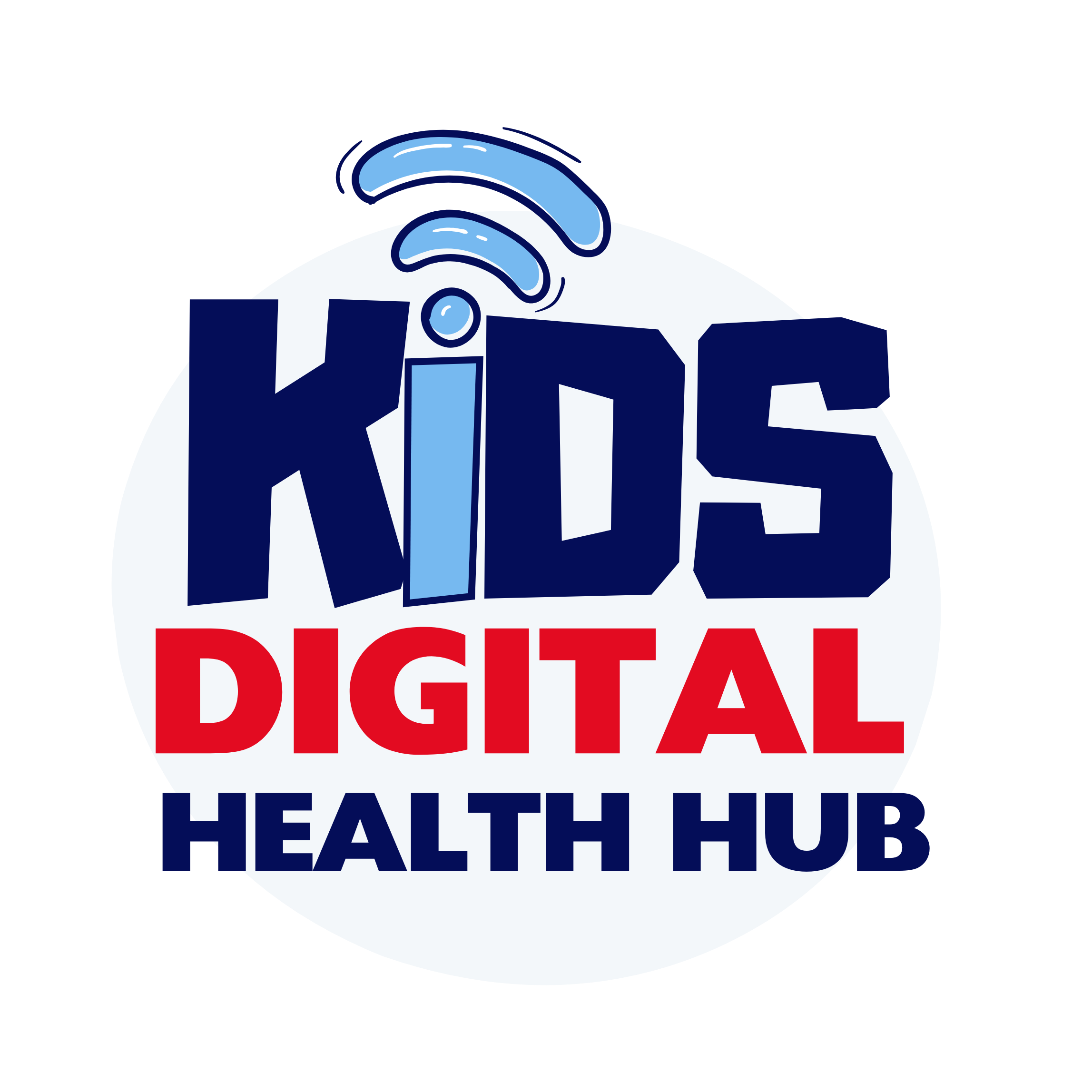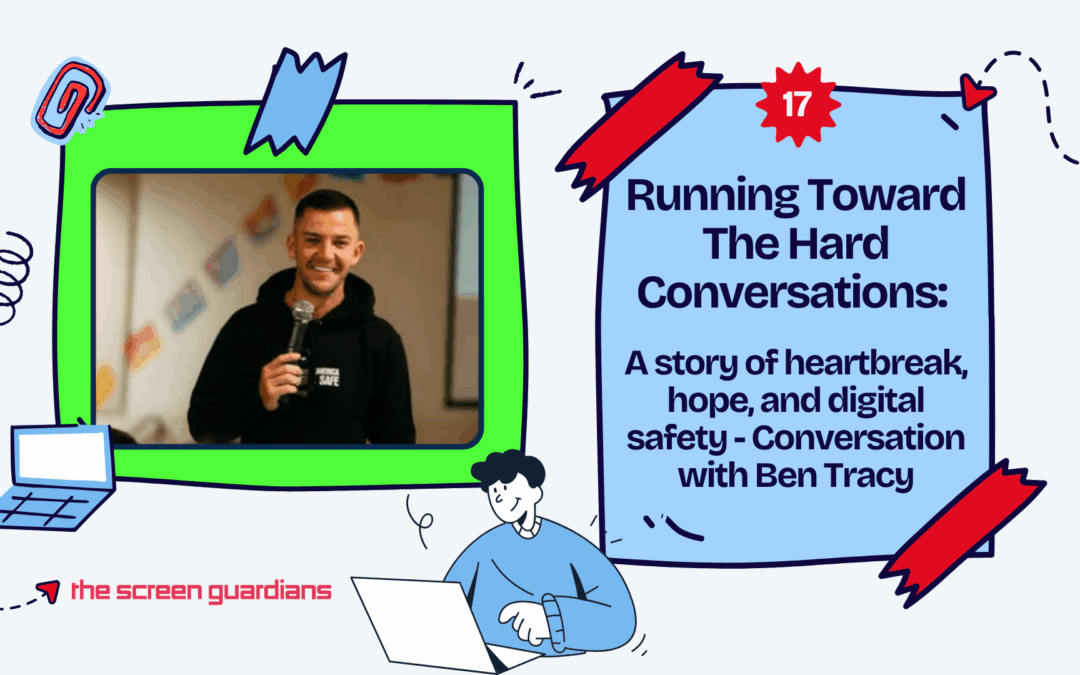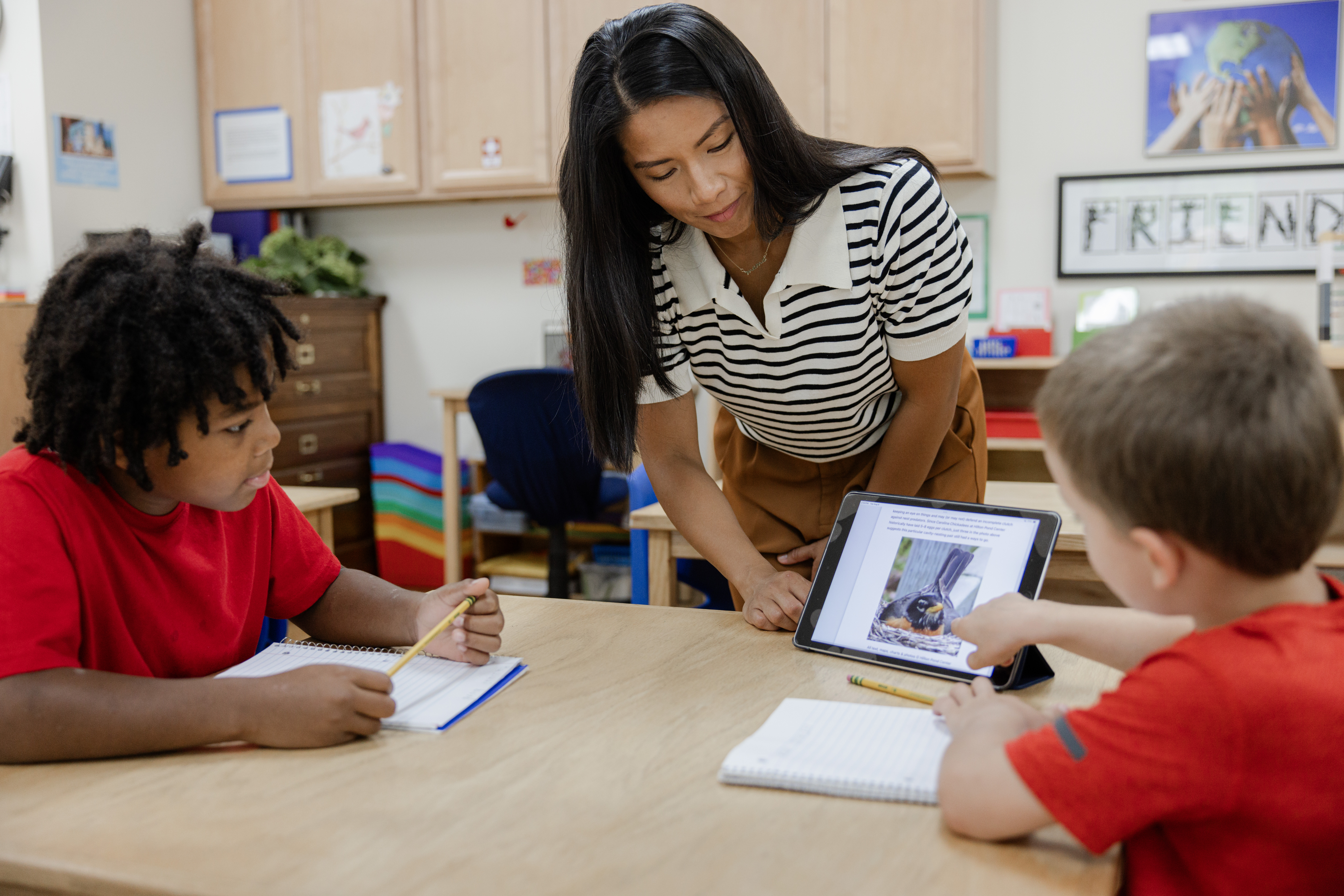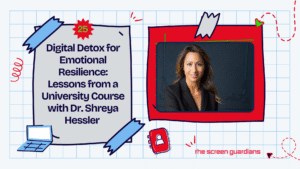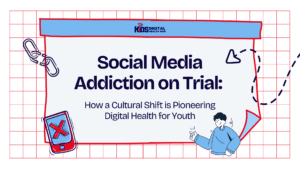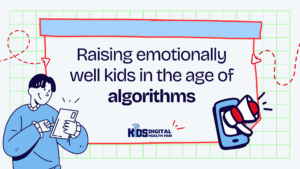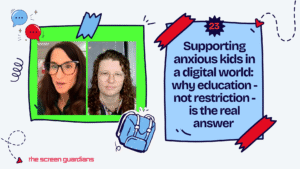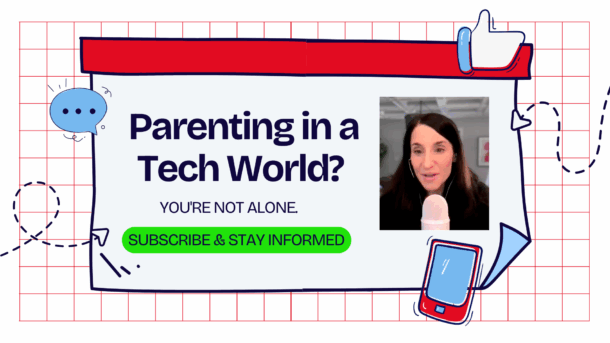I’ve always believed in the power of a story—especially when it comes from someone who’s lived every moment of it.
That’s why I invited Ben Tracy onto the Screen Guardians platform. Ben isn’t just a digital safety advocate.
He’s a man who ran across the United States—3,100 miles, 125 days, 120 marathons—all for one purpose: to draw attention to the ways digital harm is impacting our kids.
And he isn’t here for buzzwords or vague warnings. He’s here to talk about what’s real—about the lives we’ve lost, the lives we can still protect, and the hard conversations every parent, educator, school, and student needs to have.
Table of Contents
From a mistake to a mission: Digital Safety For Students
Ben’s journey into digital advocacy wasn’t planned. At 23, on the very first day of a promising political job, he was fired—because of jokes he tweeted years earlier as a teenager.
The past came for him, just as it now comes for so many of our kids. Except in their case, it often shows up in darker ways—sextortion threats, child predators, cyberbullying, body image harm. Ben quickly realized his own story was a drop in an ocean of harm.
He began traveling to schools, sharing what he’d been through. And students started showing him what they were facing.
Predators in their DMs. Eating lunch alone in school bathrooms. Feeling worthless after scrolling Instagram.
Ben didn’t ignore them.
Instead, he listened—and changed the direction of his life.
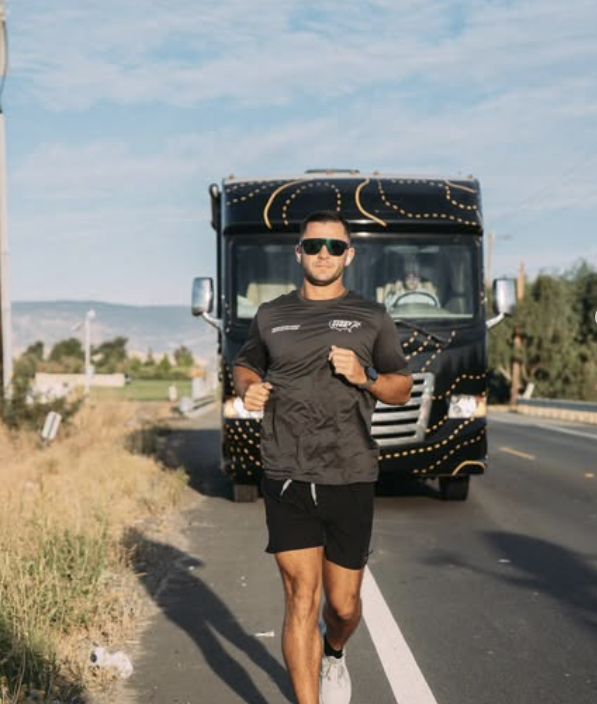
Why Ben Tracy ran across America
Some causes need more than a post or a speech. Ben knew that to reach people—really reach them—he had to do something that would make them stop and listen.
So he ran.
For the kids we’ve already lost.
For the stories that don’t make headlines.
For the students still wading through shame, confusion, and fear.
Along the way, Ben honored children who died as a result of online harm. Their names—Aiden, Zach, Evan, Caleb—were printed on the back of his RV. Families came out to run alongside him, giving him their jerseys, their stories, their tears. He called each one by name as he crossed the country.
This wasn’t a performance. It was a pilgrimage.
And at every school he stopped at, he didn’t preach. He sat with the grief. He told stories. He offered kids something too many of them hadn’t had: a trusted adult who tells the truth and listens without judgment.
“You are not your mistake. And you are never too far gone to come home.”
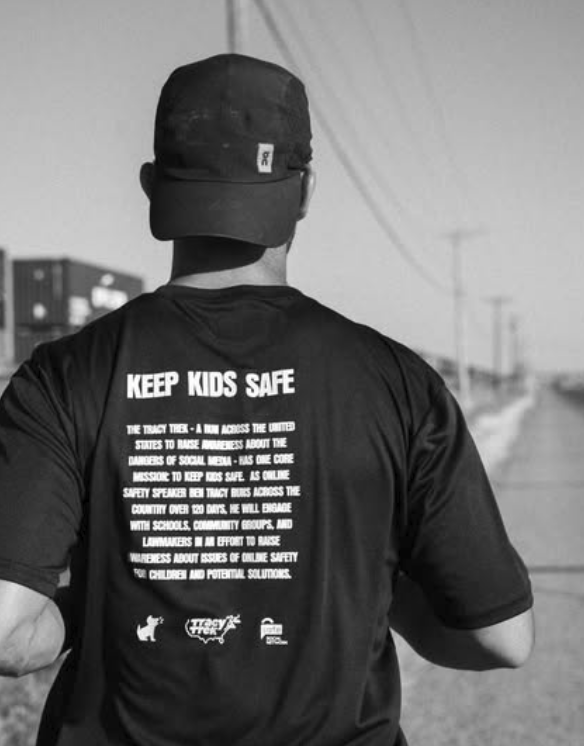
What our kids are up against
Right now in the U.S., more than 500,000 predators are active online every single day.
Sextortion cases rose from 14,000 to 24,000 in just one year.
Teen boys—who often feel they can’t talk about their confusion or shame—are dying by suicide after being targeted by these crimes.
And these aren’t “bad kids” or kids from families who don’t care.
“These weren’t bad kids. They had good parents. They weren’t on a dark path—they just didn’t realize how dangerous one message could be.”
As Ben said clearly, the only two things these stories had in common were:
- A smartphone or social media account
- A wonderful family who thought they were doing all the right things
These losses aren’t about negligence. They’re about a culture that hands kids powerful technology before we equip them to use it safely. That’s on us—parents, educators, administrators, community leaders.
“We give kids smartphones and social media… but not always the tools, language, or grace to navigate them safely.”
Conversations that can save lives
As a former nurse and a mom of three, I viscerally feel the edges of this crisis.
The anxiety. The self-harm. The fear in a student’s eyes when they don’t know who to talk to.
But I also know this: kids want to be safe. They want to feel seen. They’re looking for someone to show them how to make good choices with their screens.
They’re not tuning out. They’re overwhelmed.
Ben shared that in every single school he’s spoken at—whether to 7th graders or high school seniors—he’s never had a room full of students disengaged. Not once.
Why?
Because kids care deeply.
They just need space that’s safe enough to ask the hard questions.
“Digital harm doesn’t wait until kids are ready. That’s why we must start the conversations before the crisis.”
What every parent should know
If there’s one takeaway from this conversation, let it be this:
You don’t have to be a tech expert to parent well in a digital world.
You just have to be present. Curious. Willing to listen when your child says, “I think I messed up.” And willing to say back, “There’s nothing you can’t talk to me about. We’ll walk through it together.”
Your relationship is their best protection. Not a filter. Not a firewall. You.
If you’re a parent, start the conversation even if it feels awkward.
If you’re an educator or school administrator, know this: avoiding the topic doesn’t make the danger disappear. In fact, it deepens the risk. Every student deserves access to this information before harm can begin.
And if you’re a student reading this, know two things:
- You are not alone.
- This mess you feel stuck in—it’s not the end. There are people who will believe you, who will help you, who care more about you than your mistake.
“The greatest gift we can give our children is not perfect protection—but the confidence that no matter what, they can come to us.”
A call to remember what matters
Ben ended our conversation with a reminder I can’t stop thinking about.
Most people are good.
Most people want our kids to be safe—even the ones who don’t quite know how to make it happen.
It’s time we stop leaving that responsibility for “someone else.” These conversations belong in every home, every school board meeting, every community center.
Our kids aren’t expendable.
Their stories aren’t cautionary tales—they’re calls to step up.
Let’s answer that call, together.
Because the more we talk about this, the safer – and more seen – our children become.
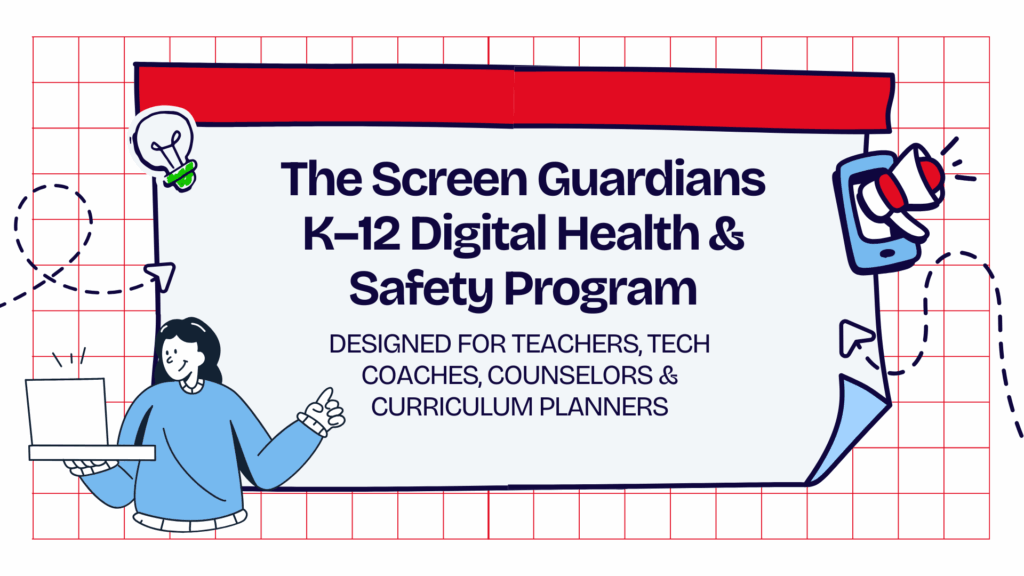
Want to bring digital wellness to your school or community?
Explore our K–12 program: Screen Guardians Curriculum
For more on Ben’s work and digital safety resources, visit Safe Social Network (or search “Ben Tracy Safe Social” to learn more).
